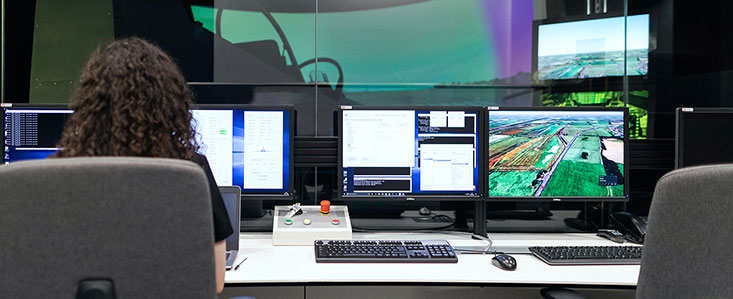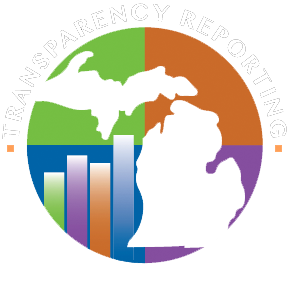Bachelor of Science
Program Details
Interested in an Applied Engineering Sciences degree?
- Curriculum (Print Version PDF)
- Course Descriptions (Office of the Registrar)
- College Undergraduate Admissions
Enrollment
- Fall 2024 – 290
- Fall 2023 – 303
- Fall 2022 – 308
- Fall 2021 – 337
- Fall 2020 – 349
Degrees Awarded
- 2023-2024 – 88
- 2022-2023 – 106
- 2021-2022 – 71
- 2020-2021 – 97
- 2019-2020 – 122
Curriculum
Courses
1. University Requirements: (23-24 Credit (cr))
- Writing, Rhetoric and American Cultures (WRA) 4 cr
- Integrative Studies in Humanities (IAH) IAH 201-210 and IAH 211 or > 8 cr
- Integrative Studies in Social Sciences (ISS) ISS 2XX and ISS 3XX 8 cr
- Bioscience (one of the following):
- BS 161, ENT 205, IBIO 150, MGI 141
- MGI 201, PLB 105, PSL 250 3-4
2. College Requirements: (30 cr)
- *CEM 141 General Chemistry 4 cr
- *EGR 100 Introduction to Engineering Design 2 cr
- **EGR 102 Introduction to Engineering Modeling 2 cr
- *MTH 132 Calculus I 3 cr
- *MTH 133 Calculus II 4 cr
- MTH 234 Multivariable Calculus 4 cr
- MTH 235 Differential Equations 3 cr
- *PHY 183 Physics for Scientists and Engineers I 4 cr
- PHY 184 Physics for Scientists and Engineers II 4 cr
*College Admission Requirement
** Students pursuing the computer science concentration take CSE 231 instead of EGR 102. Students pursuing the business analytics concentration take CMSE 202 instead of EGR 102.
3. Major Requirements: (62-82 cr)
a. Complete all of the following courses: (41 cr)
- ACC 230 Survey of Accounting Concepts 3 cr
- AESC 110 AES as a Profession 1 cr
- AESC 210 Global Sys: Econ, Engr, Environment 3 cr
- AESC 310 Sustainable Systems Analysis 3 cr
- AESC 410 Capstone Project Applied Engr Sci (W) 3 cr
- CE 221 Statics 3 cr
- CEM 161 Chemistry Laboratory I 1 cr
- EC 201 Introduction to Microeconomics 3 cr
- EC 202 Introduction to Macroeconomics 3 cr
- ECE 345 Electronic Instrumentation and Systems 3 cr
- ENE 371 Sustainable Civil and Env Engr Systems 3 cr
- ME 201 Thermodynamics 3 cr
- ME 280 Graphic Communications 2 cr
- MKT 317 Market Analytics 3 cr
- MSE 250 Materials Science and Engineering 3 cr
- PHY 191 Physics Lab for Scientists I 1 cr
b. Select one of the following courses: (3 cr)
- COM 225 Intro to Interpersonal Communication 3 cr
- MGT 325 Management Skills and Processes 3 cr
c. Select one of the following courses: (3-4 cr)
- STT 351 Probability and Statistics for Engineering 3 cr
- ***STT 380 Probability and Statistics for Data Science 4 cr
*** Students pursuing the business analytics concentration need to take STT 380
d. Concentrations: (15-38 cr)
In consultation with their academic advisor, students must select one of the following concentrations: business analytics, business law, computer science, packaging, supply chain management or technical sales. Students in the business analytics concentration must complete the data science minor. The concentrations and any additional minors will be noted on the student’s academic record.
Business Analytics: (38 cr)
1. All of the following courses: (15 cr)
- EC 301 Intermediate Microeconomics 3 cr
- FI 320 Introduction to Finance 3 cr
- GBL 385 Business Law and Ethical Leadership 3 cr
- MKT 327 Introduction to Marketing 3 cr
- SCM 303 Introduction to Supply Chain Mgt 3 cr
2. All of the following courses: (23 cr, Data Science Minor)
- CMSE 201 Computational Modeling and Data Anlys I 4 cr
- CMSE 202 Computational Modeling and Data Anlys II 4 cr
- CMSE 381 Fundamentals of Data Sci Methods 4 cr
- MTH 314 Matrix Algebra w/Computational Apps 3 cr
- STT 180 Introduction to Data Science 4 cr
- STT 380 Probability and Statistics for Data Science 4 cr
Business Law: (15-16 cr)
1. All of the following courses: (12 cr)
- EC 301 Intermediate Microeconomics 3 cr
- EC 425 Law and Economics (W) 3 cr
- GBL 385 Business Law and Ethical Leadership 3 cr
- GBL 480 Environmental Law and Sustainability for Business: From Local to Global 3 cr
2. One of the following courses: (3-4 cr)
- PHL 345 Business Ethics 4 cr
- PHL 354 Philosophy of Law 3 cr
- PLS 320 Judicial Politics 3 cr
- PLS 321 Constitutional Law 3 cr
- PLS 322 Comparative Legal Systems 3 cr
Computer Science: (18-19 cr)
1. All of the following courses: (12 cr)
- CSE 231 Introduction to Programming I 4 cr
- CSE 232 Introduction to Programming II 4 cr
- CSE 260 Discrete Structures in Computer Sci 4 cr
2. Two of the following courses: (6-7 cr)
- CSE 320 Computer Organization and Architecture 3 cr
- CSE 325 Computer Systems 3 cr
- CSE 331 Algorithms and Data Structures 3 cr
- CSE 335 Object-Oriented Software Design 4 cr
- CSE 380 Information Management and the Cloud 3 cr
- CSE 420 Computer Architecture 3 cr
- CSE 429 Interdisciplinary Topics in Cyber Security 3 cr
- CSE 431 Algorithm Engineering 3 cr
- CSE 476 Mobile Application Development 3 cr
- CSE 477 Web Application Architecture and Development 3 cr
- CSE 480 Database Systems 3 cr
Packaging: (17 cr)
- CEM 143 Survey of Organic Chemistry 4 cr
- PKG 101 Principles of Packaging 3 cr
- PKG 221 Packaging with Glass and Metal 2 cr
- PKG 322 Packaging with Paper and Paperboard 4 cr
- PKG 323 Packaging with Plastics 4 cr
Supply Chain Management: (15 cr)
- FI 320 Introduction to Finance 3 cr
- MKT 327 Introduction to Marketing 3 cr
- SCM 303 Introduction to Supply Chain Mgt 3 cr
- SCM 371 Procurement and Supply Management 3 cr
- SCM 372 Manufacturing Planning and Control 3 cr
Note: Suggested Elective SCM 373
Technical Sales: (18 cr)
- COM 360 Advanced Sales Communication 3 cr
- COM 483 Practicum in Sales Communication 1 cr
- FI 320 Introduction to Finance 3 cr
- MGT 474 Negotiations 2 cr
- MKT 313 Personal Selling and Buying Processes 3 cr
- MKT 327 Introduction to Marketing 3 cr
- MKT 383 Sales Management 3 cr
Note: COM 483 requires a sales based internship
Other Electives (Variable)
Total Credits Required for Degree 120
Total Credits Required for Degree with a concentration in Business Analytics and a Data Science Minor 133
The requirements listed above apply to students admitted to the major of Applied Engineering Sciences beginning Fall 2025. The Engineering Undergraduate Studies Office constantly reviews requirements and reserves the right to make changes as necessary. Consequently, each student is strongly encouraged to consult with their advisor to obtain assistance in planning and appropriate schedule of courses.
Sample
First Year
| Fall | Credits | Spring | Credits |
|---|---|---|---|
| AESC 110 | 1 | CEM 161 | 1 |
| CEM 141 | 4 | PHY 183 | 4 |
| EGR 100 | 2 | EGR 102 | 2 |
| MTH 132 | 3 | MTH 133 | 4 |
| WRA 101 | 4 | Bioscience | 3/4 |
| Total | 14 | Total | 14/15 |
Sophomore Year
| Fall | Credits | Spring | Credits |
|---|---|---|---|
| EC 201 | 3 | AESC 210 | 3 |
| PHY 191 | 1 | CE 221 | 3 |
| MTH 234 | 4 | EC 202 | 3 |
| ISS 2XX | 4 | ACC 230 | 3 |
| IAH 201-210 | 4 | MTH 235 | 3 |
| Total | 16 | Total | 15 |
Junior Year
| Fall | Credits | Spring | Credits |
|---|---|---|---|
| AESC 310 | 3 | CONC | 3 |
| ME 201 | 3 | ME 280 | 2 |
| PHY 184 | 4 | MKT 317 | 3 |
| STT 351 | 3 | ISS 3XX | 4 |
| ENE 371 | 3 | IAH 211 or > | 4 |
| Total | 16 | Total | 16 |
Senior Year
| Fall | Credits | Spring | Credits |
|---|---|---|---|
| CONC | 3 | AESC 410 | 3 |
| CONC | 3 | CONC | 3 |
| MGT 325 or COM 225 | 3 | CONC | 3 |
| MSE 250 | 3 | ECE 345 | 3 |
| Elective | 3 | Elective | 2 |
| Total | 15 | Total | 14 |
Program Objectives
The Applied Engineering Sciences (AES) major is an undergraduate B.S. degree program in the MSU College of Engineering. AES is a multidisciplinary program that integrates core studies in mathematics, statistics, and science, core studies in multiple engineering disciplines, and core studies in business fundamentals and management. Built on this strong technical and business base, an AES student completes their studies by selecting one of six concentration areas: business analytics, business law, computer science, packaging, supply chain management, or technical sales.
AES is focused on developing strong problem solvers who have good people skills, and who bring to their workplace an integrated approach to understanding and managing complex business and engineered systems. More specifically, the AES program objectives are for each AES graduate to have the ability to:
- apply an integrated knowledge of engineering and business to problem solving, and;
- effectively function at the interfaces of engineering, design, production, procurement, marketing, distribution, sales, and management;
- effectively function in work teams, including functioning as a manager and a leader;
- effectively communicate in oral, written, and new media contexts;
- effectively apply the strengths of a technically based education to all problem solving contexts, and;
- effectively demonstrate the nimbleness and flexibility to respond to new types of problems and new opportunities based on being a lifelong learner.
Objectives and Outcomes
The Applied Engineering Sciences (AES) major is an undergraduate B.S. degree program in the MSU College of Engineering. AES is a multidisciplinary program that integrates core studies in mathematics, statistics, and science, core studies in multiple engineering disciplines, and core studies in business fundamentals and management. Built on this strong technical and business base, an AES student completes their studies by selecting one of six concentration areas: business analytics, business law, computer science, packaging, supply chain management, or technical sales.
AES is focused on developing strong problem solvers who have good people skills, and who bring to their workplace an integrated approach to understanding and managing complex business and engineered systems. More specifically, the AES program objectives are for each AES graduate to have the ability to:
- apply an integrated knowledge of engineering and business to problem solving, and;
- effectively function at the interfaces of engineering, design, production, procurement, marketing, distribution, sales, and management;
- effectively function in work teams, including functioning as a manager and a leader;
- effectively communicate in oral, written, and new media contexts;
- effectively apply the strengths of a technically based education to all problem solving contexts, and;
- effectively demonstrate the nimbleness and flexibility to respond to new types of problems and new opportunities based on being a lifelong learner.
Concentrations
Selection Form
AES requires a concentration selection that is part of the 120 credits needed to graduate with a Bachelor of Science Degree from the College of Engineering. The concentration and any additional minors will be noted on the student’s academic record.
Concentrations: (15-38 credits)
In consultation with their academic advisor, students must select one of the following concentrations: business analytics with Data Science minor, business law, computer science, packaging, supply chain management or technical sales.
For students interested in computer science, the minimum criteria for acceptance is the completion of Computer Science and Engineering 231 and 260 with a combined grade-point average in those two courses of 3.0.
Students in the Business Analytics concentration must complete the data science minor.
See Curriculum tab for details on concentrations.
More Info
Overview
Applied Engineering Sciences (AES) is a multidisciplinary program combining the strengths of engineering with business acumen. This includes core subjects required by the College of Engineering with extensive foundational coursework in five engineering disciplines plus additional experiences in STEM. In addition, each AES student takes essential subjects in business. The major is flexible and versatile with six concentrations resulting in the major being at most 68% STEM or at most 28% business. The curriculum is complemented by the student choice of a concentration to drill down in an area of interest. Graduates are in demand by companies in a vast range of fields from information technology to manufacturing to automotive.
Concentrations
- Business Analytics with Data Science Minor
- Business Law
- Computer Science
- Packaging
- Supply Chain Management
- Technical Sales
Research
AES is an undergraduate program. Students seeking research opportunities are matched with other programs/colleges.
Industries
- Energy
- Pharmaceuticals
- Automotive
- Manufacturing
- Food Industry
- Computer
- Consulting
- Patent Law
Careers
- Data Scientist/Data Analyst
- Application Engineer
- Commodity Manager
- Distribution Specialist
- District Sales Engineer
- Expediter/Facilities Engineer
- Financial Analyst/Forecaster
- Industrial Market Analyst
- Logistics Engineer
- Manufacturing Control Engineer
- Materials Control Engineer
- Operations Manager
- Product Engineer
- Project Manager
- Quality Assurance Engineer
- Systems Application Engineer
- Technical Sales Engineer


